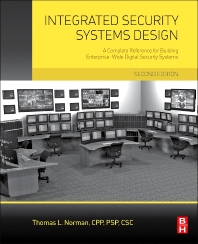Forget the adversarial roles. Glen Mowrey and Dean Belisle are bridging the gap when it comes to cities, states, mayors, law enforcement and the security industry as they come together to tackle problems related to false alarms.
“It’s relationship and trust,” said Mowrey, with nearly four decades in law enforcement and now with the Security Industry Alarm Coalition (SIAC), Frisco, Texas. And it took those skills to help make Detroit believe in the value of enhanced call verification (ECV) as it successfully reduced false alarms, according to Dean Belisle, long-time president of the Burglar and Fire Alarm Association of Michigan (BFAAM), and vice president of family-owned Act Now Alarm, Clinton Twp, Mich.
Working in 14 states, including deep relationships in Georgia, Florida and South Carolina, Mowrey is opening doors and closing down false alarm problems by identifying with the police chief while making the case for ECV and other security industry-centric solutions. He walked into a meeting in Detroit arranged by Belisle back in October and, in a couple of months, the city boasts a significant reduction in false alarm calls.
The success of such partnerships, including recent advances there and in Eau Claire, Wis., is no easy accomplishment.
In Detroit, it was a matter of personalities and immediate focus, said Belisle. “A new mayor and a new chief of police. New faces. It is a testament to them. They wanted results,” he said. It also was a matter of trust. At a meeting, SIAC’s Mowrey was asked hard questions he explained and answered. “We treated the city like a client,” commented Belisle. ECV is not the end. The city, with the help of local security businesses, is helping educate so-called false alarm “abusers” and there is an anticipated enhanced false alarm ordinance in the future.
Detroit Police Department Commander Todd Bettison, who sought a “hard and fast” solution, is pleased with the outcome of implementing ECV. “It’s a best practice,” and the city is handling 1,400 fewer calls than it would normally handle, after the procedural change in December.
In Eau Claire, Wisc., the police department reports a similar decrease in calls for service thanks to a program developed with the Wisconsin Electronic Security Association (WIESA). Between 2005 and 2011, alarm dispatches dropped by 50 percent thanks to the implementation of proven strategies developed by SIAC.
“ECV is one of the most effective programs for identifying a system that has been accidentally activated,” observed WIESA member Dave Koenig. “It is a best practice that has shown dramatic results throughout the United States as alarm associations and police work together.”
SIAC Executive Director Stan Martin also emphasized the improvements in the control panel, as highlighted by the ANSI SIA CP-01 2010 standard, which deals with exiting, arming, entering and disarming, among other homeowner features.



